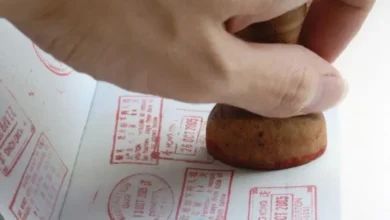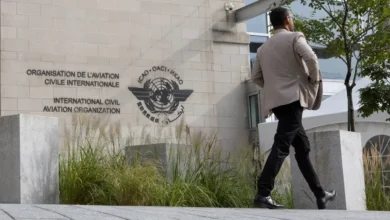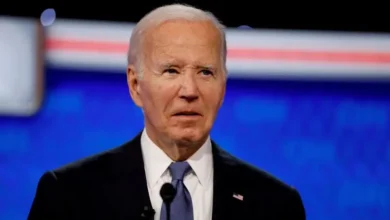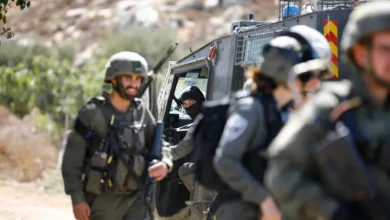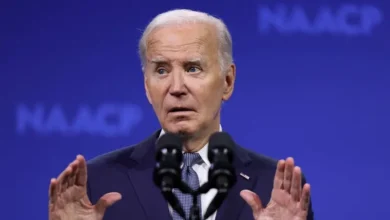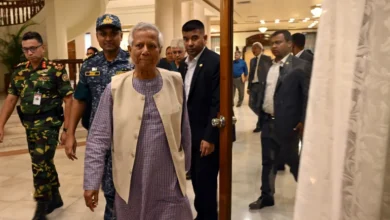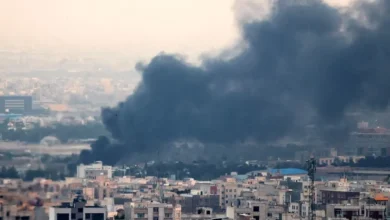Challenges of advocating peace in Israel: Activists face crackdown amid Gaza conflict

Clutching an olive branch, 24-year-old Roni keeps a wary eye out for the police as she leads a small ceasefire march through the heavily guarded streets of Tel Aviv.
She and her friends say they have been arrested, harassed and received death threats following similar demonstrations against Israel’s onslaught of the Gaza Strip after Hamas’s bloody October 7 attack.
“It’s almost impossible to call for peace in Israel right now,” the activist said, glancing over her shoulder. “You have to be very careful.”
Civil rights groups say Israeli authorities have launched a sweeping crackdown on internal dissent since the war began, including the interrogation of hundreds of anti-war activists and charges of terror offenses.
Hamas’s cross-border attack killed about 1,140 people in Israel, mostly civilians, according to an AFP tally based on the latest official Israeli figures, with around 250 hostages taken back to Gaza.
Israel’s retaliatory assault has killed at least 19,667 people in Gaza, mostly women and children, according to the health ministry in the Hamas-run territory.
But as global peace demonstrations and international diplomacy build pressure on Israel to minimize civilian casualties, it has become harder than ever for Israelis to challenge their government.
“What we’re seeing now is unprecedented in its scope,” said Noa Sattath, the head of ACRI, Israel’s oldest civil rights group. “The silencing of dissent is overwhelming.”
‘Zero tolerance’
Following the onset of the conflict, Israel’s police chief Kobi Shabtai declared a “zero tolerance” policy for protests in support of Gaza, even threatening to send anti-war demonstrators to the besieged territory.
Shabtai said Israel cannot allow “all sorts of people to come and test us”, in a clip posted online.
Israel’s police force told AFP that while it “firmly upholds the fundamental right to freedom of speech, it is also imperative to address those who exploit this right to incite violence, promote obscenity, engage in hate speech, issue threats, or create public safety concerns, especially during times of war against a cruel terrorist organization.”
But rights groups say police are using their powers to target peaceful activists, especially among Israel’s Arab minority, which makes up around a fifth of the population.
The Adalah legal center, dedicated to safeguarding the rights of Palestinian citizens of Israel, said it had followed the cases of almost 300 arrested since the start of the war.
In most instances police tried to extend their detention, it said.
Adalah said police had repeatedly denied permits for anti-war rallies, detained protest leaders ahead of marches, and cracked down on demonstrators with “brutal force”.
Authorities have charged scores of Palestinian citizens of Israel with “supporting terrorist organizations” or “incitement to terrorism,” it said.
“The state interprets any support for Gaza as support for terror,” the group’s head Hassan Jabareen told AFP. “It’s like living under a military regime.”
Neighborhood watch
But it’s not just the authorities that anti-war campaigners have to watch out for. They’ve faced intense backlash from fellow citizens too.
Opinion polls suggest the Israeli public became more hawkish than at any point in the last two decades after the Hamas attack.
Israel’s peace activists are in a minority, and feel dangerously exposed.
“People tell us holding these protests is shameful right now,” said Roni, who asked to withhold her last name after being called a traitor and receiving death threats online.
Even old friends from her hometown have sent abusive messages. One seen by AFP said: “I hope you and your family get raped” and taken to Gaza.
Under pressure from police and the public, activists have had to tone down their demonstrations and find ways to skirt around restrictions.
Roni’s group does not have a name, believing it is safer to stay anonymous. They hold vigils or smaller rallies, and usually avoid bringing Palestinian flags which can spark aggressive reactions.
Before the war, Roni said her group could stage bolder demonstrations against causes contrary to the right-wing government’s stance.
But the mood has now changed drastically.
She said she was among 18 people arrested at a November 9 demonstration in Jaffa. Social media footage verified by AFP shows police manhandling protesters and confiscating their signs.
“To even be on the streets we’ve had to moderate what we say,” Roni explained. “You can’t be seen to be sympathising with Gaza now.”
In a state where calling for peace can be taken as an act of rebellion, a simple message often works best, Roni said.
Still clutching her olive branch, she marches towards the defence ministry, chanting: “Stop the war.”

